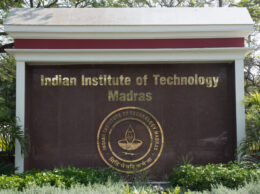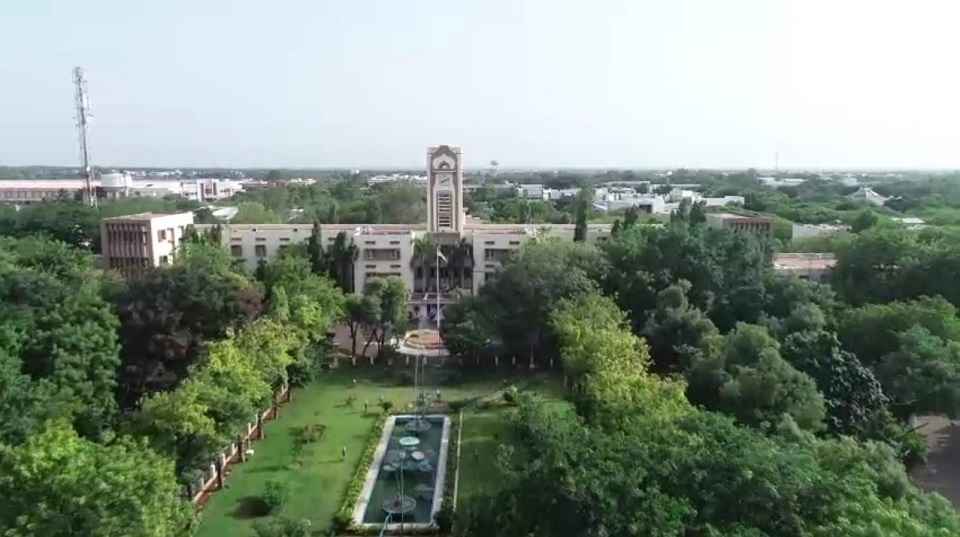New Delhi : Indraprastha Institute of Information Technology Delhi (IIIT-Delhi) hosted a virtual ceremony for its 10th convocation this Saturday owing to the COVID-19 scenario in the country. This year, the institute conferred degrees upon 345 B.Tech., 205 M.Tech. (including one dual degree) and 26 Ph.D. students.
In this year’s graduation, Shubham Thakral (B.Tech- CSE) was awarded with the prestigious Chancellor’s Gold Medal, while Sameep Dahal (B.Tech. CSAM), Riya Singh (B.Tech. CSD), Angel Walia (B.Tech. CSD), Aarushii Agrawal (B.Tech. CSSS), and Samarth Singhal (B.Tech. ECE) were awarded the Institute Silver Medal. Five students, Chhavi Keswani (B.Tech. CSAM), Riya Singh (B.Tech. CSD), Chirag Jain (B.Tech. CSE), Shubhangi Butta (B.Tech. CSSS), and Khalid Lodhi (B.Tech. ECE) received the All Round Performance Medals. Kajal Singla (M.Tech. CB) was graced with the Gold Medal for Excellent Academic Performance in all of the M.Tech. program
Professor Gagandeep Kang, Laboratory Director at The Wellcome Trust Research Laboratory, Division of Gastrointestinal Sciences, Christian Medical College, Vellore, India graced the event as the chief guest. She is the first woman from India to be elected a Fellow of the Royal Society and Fellowship of the American Academy of Microbiology and the only physician-scientist to receive the Infosys Award in Life Sciences. While addressing the graduating students, Prof. Kang said that “It is, of course, a matter of great privilege to be graduating from IIIT-Delhi which describes cutting edge research as part of its institutional DNA. The mission is focused obviously on excellence in Information Technology, both in terms of education and research. But very importantly, to also be innovators who are socially relevant.”
Further motivating the students, Prof. Kang quoted, “I have three messages for you: The first is to build your scientific temper. If we follow the science, including the uncertainties of science and discovery, I think we will find our way there. The second message is to think about embracing the struggle. Your abilities and skills are foundational to building your careers and to changing the world. My third message to you is to empathize. I think we can do this, if we can understand what it is to walk a mile in other people’s shoes, we will understand what it is that we need to do to help not just ourselves, but society as well.”
On the occasion, Shri Anil Baijal (Chancellor) and Shri. Kiran Karnik (Chairman, Board of Governors) congratulated the graduating students, and shared their words of wisdom. Shri Baijal conveyed to the students, “I would like to tell you that to my mind, you are the scholars and practitioners of alchemy – the alchemy of education that has the power to fundamentally transform your personal lives, the society, as indeed the Nation.” Encouraging the graduands, Shri Karnik said, “You, my young friends, inspire me with your determination to learn, your grit and persistence to perform, your innovative ways to keep yourself motivated even during gloomy times. As you begin the next chapter of your lives, I hope you will keep learning, growing, and serving the nation well with your talents, skills, and ingenious ideas.”
During the event, Director, Prof. Ranjan Bose presented the Director’s report for the year 2020-2021. Prof. Bose shared in his report some of the major initiatives taken by the Institute. Specifically, he mentioned about the new Centre of Sustainable Mobility, the Institute’s involvement with the Delhi Research Implementation and Innovation (DRIIV) program sponsored by the Office of PSA, new PG Diploma programs, Professor of Practice positions and the Institute’s commitment towards lending its expertise for Sustainable Development Goals.
Complementing the graduating students, Prof. Bose remarked, “Your graduating class has been put to the test, and you’ve passed with flying colors! You have undoubtedly grown academically in the last few years. You have also developed as leaders.” He further added, “In the last several months, you perhaps took a crash course in the meaning and purpose of life. It also gave you a different perspective on science and technology: science must ask consequential questions, and technology matters only if it can help improve human lives.” He concluded by challenging the students to help in defining, shaping, and inventing a better tomorrow.








